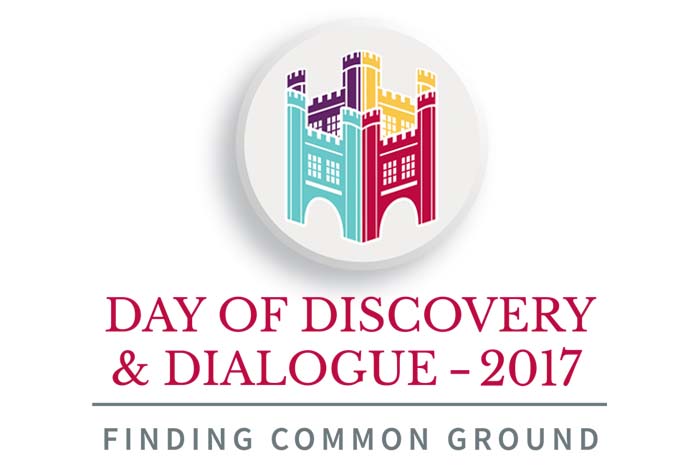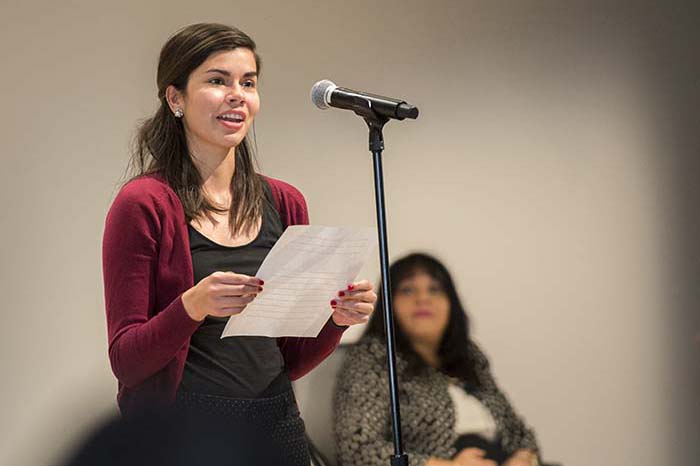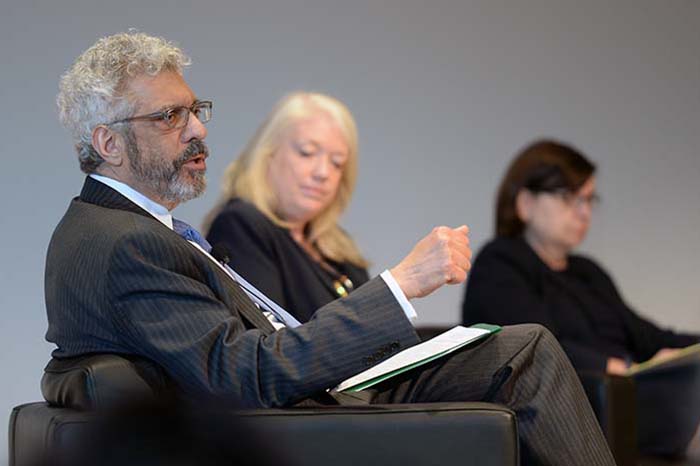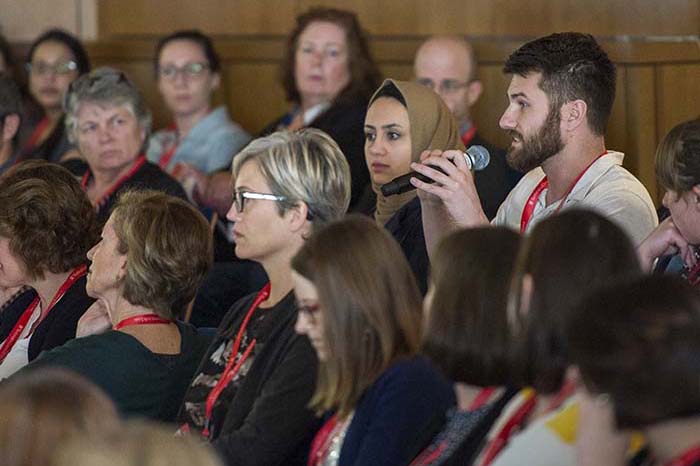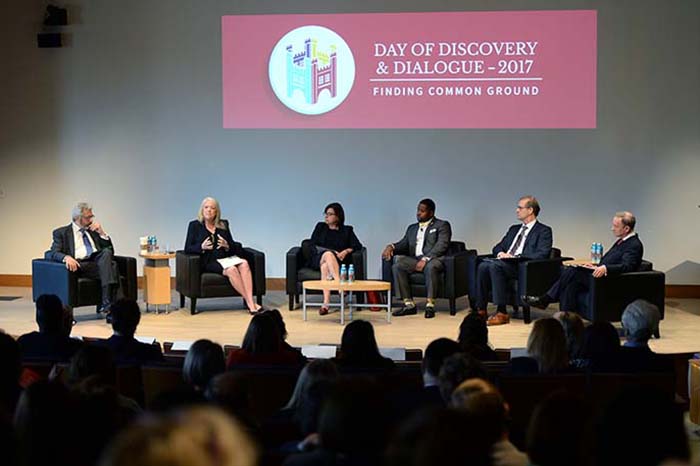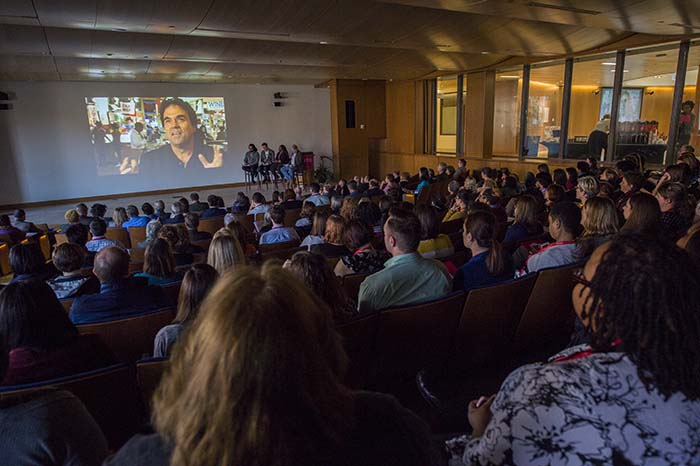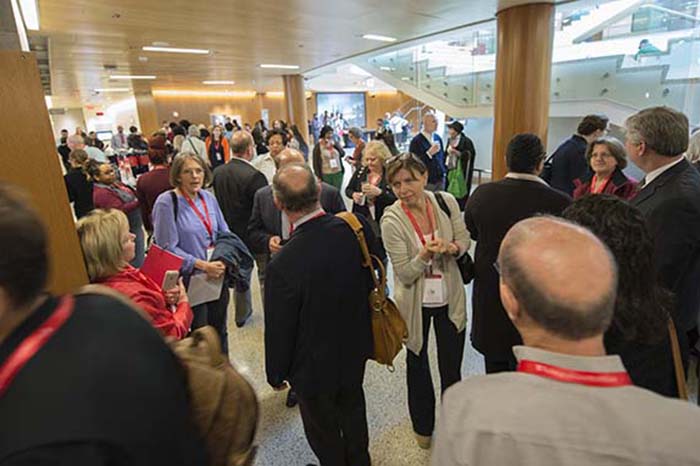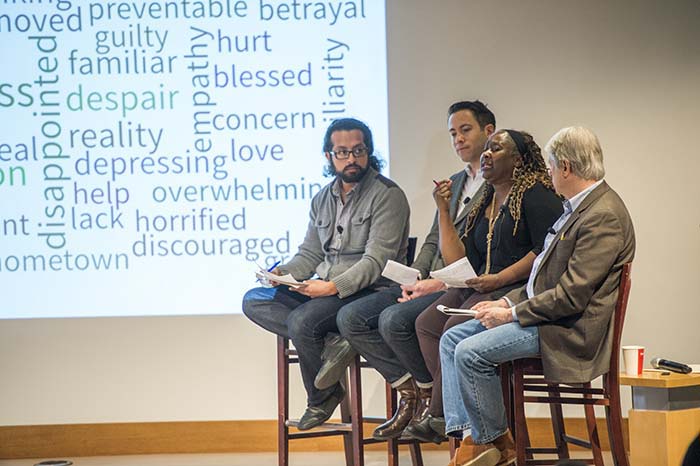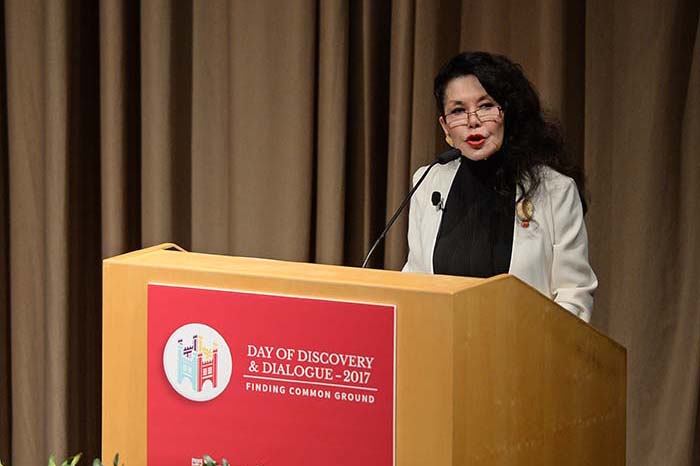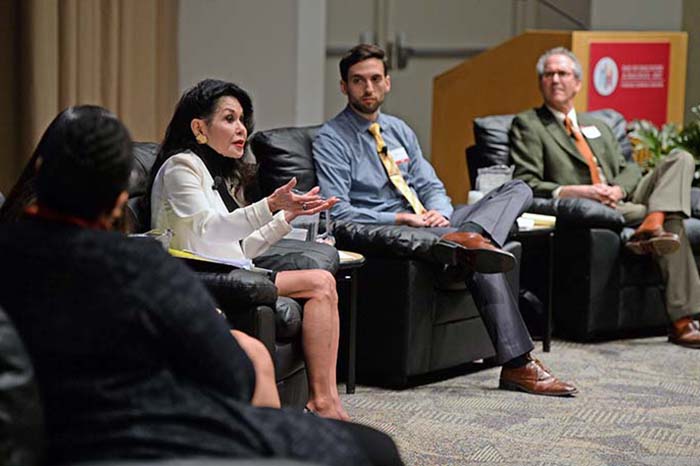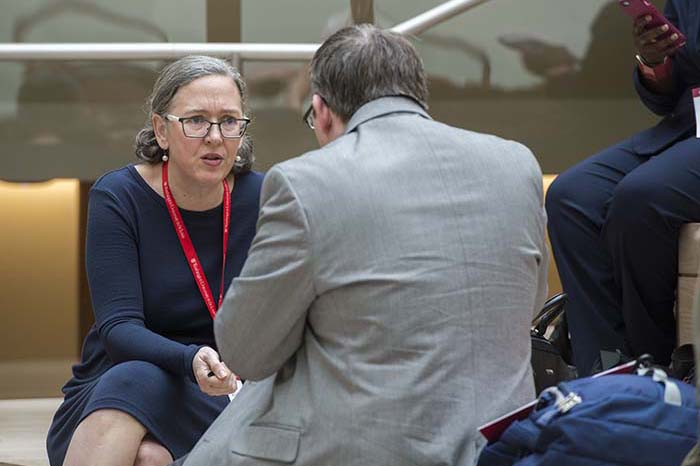On February 22-23, 2017, we gathered to learn from one another and gain a deeper understanding through each other’s experiences. Our objective was simple: to further open hears and minds through conversation and to discover what makes each of us unique and what binds us so strongly together as a community.
This year, our focus was on the timely and challenging issues of identity and class, and how each plays out in our day-to-day lives.
Only together can we continue to grow as a community.”
~ Chancellor Mark S. Wrighton
Please select the titles to watch videos from each session.
Wednesday, February 22
“Giving Power to Voices Endangered by Silence”
Keynote address by Janice Mirikitani, a visionary poet, community leader, and educator.
The event began on the Medical School Campus with Will Ross, Associate Dean for Diversity and Professor of Medicine in the School of Medicine, delivering opening remarks and introductions.
This opening program set the stage for our dialogue, with insight and inspiration from San Francisco’s second poet laureate. Mirikitani has authored five books of poetry (Awake in the River; Shedding Silence; We, the Dangerous; Love Works, and Out of the Dust) and is the editor of nine landmark anthologies that provide platforms for writers of color, women, youth, and children. She has also worked in civil rights causes for various multiethnic communities, including the struggle for redress for Japanese Americans incarcerated during WWII.
A Conversation and Q&A
I dialogue followed, moderated by Adrienne Davis, Vice Provost and William M. Van Cleve Professor of Law and featuring Joe Loewenstein, Professor of English, Director of the Humanities Digital Workshop and the Interdisciplinary Project in the Humanities, Ruby Aurora, College of Arts & Sciences, Class of 2018, and Kevin Garza, second-year student in the School of Medicine
Thursday, February 23
After a welcome from Lori S. White, Vice Chancellor for Student Affairs and Professor of Practice of Education, the day began with panel presentations, a mosaic of stories from the WashU community, a discussion based on film excerpts, and culminated in a small-group, hands-on exercise.
Session 1: Forging a Collaborative Path for Inclusion and Change in St. Louis: The Role of Higher Education
A panel discussion featuring regional college and university leaders
Moderated by Chancellor Mark S. Wrighton
Local higher education leaders reflected on finding common ground through the lens of higher education and discussed how colleges and universities in the region might collaborate to make an impact on related issues in the St. Louis area. Panelists addressed how their respective institutions are responding to issues of class (e.g., increasing access for lower income students, programs supporting St. Louis communities) and offered thoughts regarding joint efforts that can positively impact our region. Panelists also offered broader thoughts on the idea of forging common ground in our current era.
Session 2: The Impact of Class: A Discussion Based on Film Excerpts from People Like Us: Social Class in America
Introduction by Provost Holden Thorp; Moderated by Mark Rank, Herbert S. Hadley Professor of Social Welfare
People Like Us: Social Class in America is a PBS film exploring questions of how income, family background, education, attitudes, aspirations, and appearance impact perceptions of one’s social class. This session included excerpts from the film and offered perspectives on issues of class from Washington University scholars.
Session 3a: A Mosaic of True Stories
Facilitated by Denise DeCou, Director, Diversity and Inclusion, Continuing Development/Program Delivery for Human Resources
A Mosaic of True Stories recounted real, though anonymously told, experiences of Washington University students, staff and faculty in short monologues.
Session 3b: Mapping Our Narratives: Visions of Identity
Facilitated by Emelyn dela Peña, Associate Vice Chancellor for Student Affairs; Dean, Center for Diversity and Inclusion
This session posed the question, “What parts of your identity would you like to see affirmed and better supported?”
Attendees gathered in small groups to share stories through a visual mapping of identity. Art supplies were provided to share participants’ narrative in text, picture, collage, or other creative means.
Continue the Conversation
We invite you to be inspired by what you experience here.
Download the Conversation Guide.
